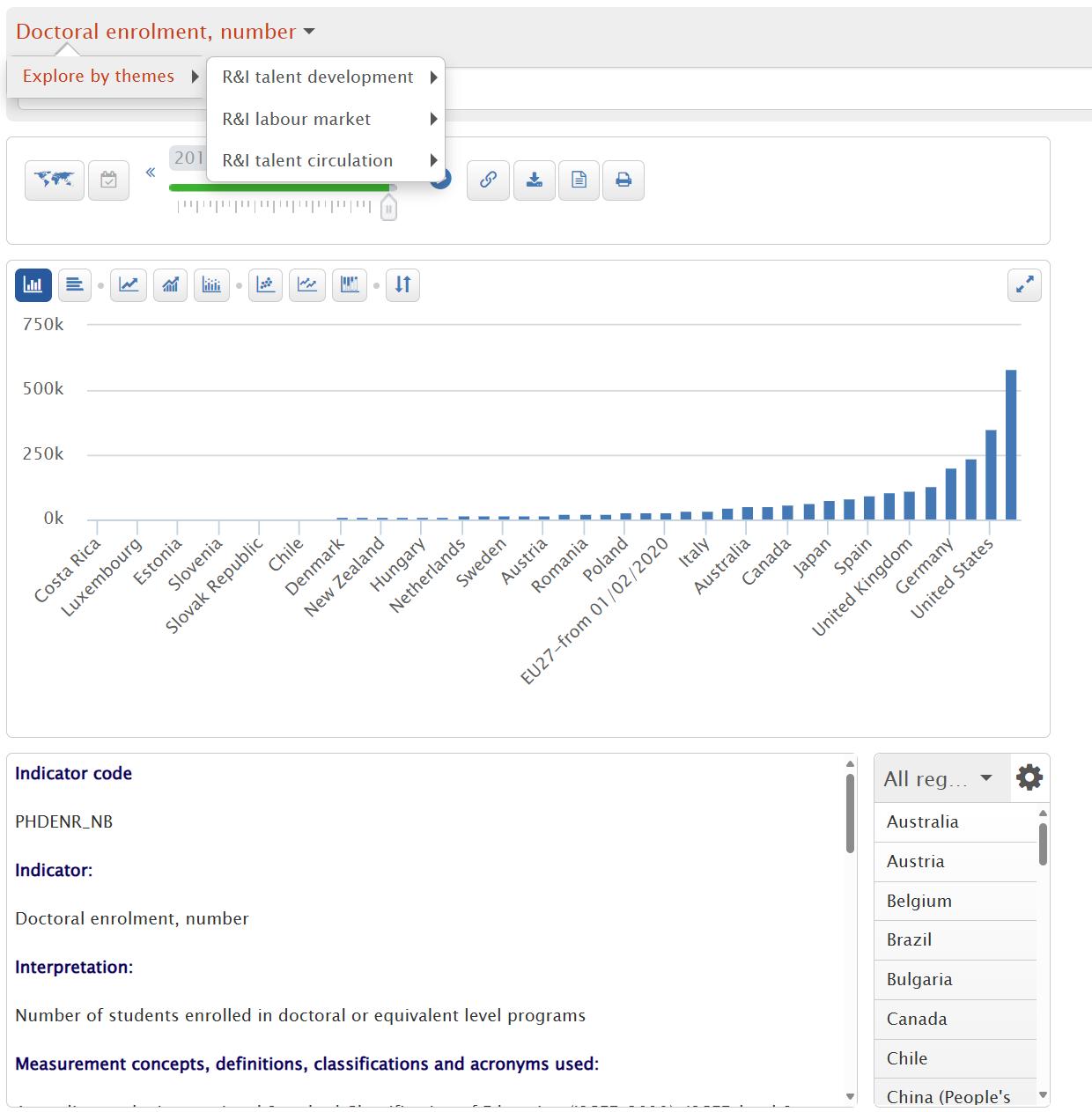BETA-Launch of the Research and Innovation Careers Observatory (ReICO)


Date: 19 June 2025
Time: 11:30-13:00 (Paris)
Location: Room E, Château de la Muette,
OECD Conference Centre (Hybrid Event)




Date: 19 June 2025
Time: 11:30-13:00 (Paris)
Location: Room E, Château de la Muette,
OECD Conference Centre (Hybrid Event)

Jerry Sheehan, Director, Science Technology and Innovation, OECD
Magda De Carli, Head of Unit and Deputy Director, ‘ERA, Spreading Excellence & Research Careers’, DG Research & Innovation, European Commission

Context and main highlights
Alessandra Colecchia, Head of Division, Science and Technology Policy (STP), Directorate for Science Technology and Innovation (DSTI), OECD
Navigating the ReICO hub
Daniel Sanchez-Serra, Economist and ReICO team member Science and Technology Policy (STP), Directorate for Science Technology and Innovation, OECD










Articulate a common language for R&I talent and careers.
Provide a robust system for comparative statistical monitoring of R&I talent and careers.

Drive a forward-looking, consensus-based measurement agenda for R&I talent and careers.
Offer access to a complementary repository of policies relating to R&I talent and careers.
Provide solid foundations for policy analysis and research.
Foster community engagement and build networks to support the R&I talent evidence agenda.
Promote continuous learning and improvement across all these dimensions.
Ensure that the full range of statistical and related resources are accessible and user-friendly.
6-year project with annual releases of updated data and insights REICO 2025=beta



R&I Talent Development

R&I Labour Market

R&I Talent Circulation
Youth Advanced qualification students (MSc/Phds)
Workforce with advanced formal qualifications (MSc/PhDs) R&D workforce
Workforce with skills / in occupations relevant for R&I
Different R&I communities (scientists, inventors, …)



R&I Talent Development

R&I Labour Market

R&I Talent Circulation
OECD - Indicators of Education Systems Programme (OECD-INES)
OECD - Programme for International Student Assessment (OECD-PISA)
OECD - Survey of Adult Skills (OECD-PIAAC)
OECD - Research and Development Statistics and Main Science and Technology Indicators (OECD-RDS/MSTI)
OECD - Scientific bibliometric indicators (not official stats)
EU – Labour Force Survey (EU-LFS)
OECD – Database on Immigrants in OECD and non-OECD countries (OECDDIOC)
ILO – Education and Mismatch Indicators (EMI); Wages and Working Time Statistics (COND); International Labour Migration Statistics (ILMS)
OECD – Labour Market and Social Outcomes of Education (OECD-LSO)
OECD ReICO -NCP 2024 data collection, focused on Doctorate and Master’s degree holders.





53 countries are covered in the ReICO hub and database, with varying degrees of coverage


45 countries have so far designated National Contact Points (NCPs) via NESTI and CSTP NCPs facilitated coordinated data provision and community engagement.

31 countries provided national data specifically for the ReICO 2025 beta-release.
Among the 14 others, many are preparing for 2025 data collection
But several if not all need support within their countries and organisations




Doctoral graduates represent approx. 8-9% of master’s graduates


Expecting to work in S&E careers (15-year-olds) and % of Doctoral graduates in STEM

Source: OECD, PISA2022, Education at a Glance 2024

Comparing different points in the education pipeline
PISA science performance and % of Doctoral graduates in STEM


Strong correlation between youth performance in science and relative importance of STEM in doctoral graduation


Doctorate holders are now on average more than 1% of the workforce.
Grade inflation or genuine demand for specialist research skills?





R&D personnel are increasingly employed in the business sector, highlighting its growing importance as a career destination.
What are the qualifications and skills on demand in the business sector?
Existing R&D surveys don’t say much on that.



PhD educated workers are less likely to work in market sectors than Masters’ degree holders Education and Health play a preeminent role in many countries.

Remuneration for R&I talent, 2023 or most recent year


Major differences in financial resources for R&D personnel (USD PPPs)

Positive but relatively small financial returns to PhD over Master’s



Doctorate holders slightly less likely to have indefinite contracts. But not all indefinite employment contracts are equal Young graduates face very different outcomes




STEM doctoral graduates are more likely to be internationally mobile than in other fields



Foreign-born individuals account for a significant share of the highly educated workforce



Resources for R&D personnel correlate with a share of foreign-born individuals in the doctorate holder workforce



Legitimate concerns of brain drain for some countries, but net flows are relatively small compared with gross flows (churn in next slide)

Talent circulation or brain drain/gain?




https://www.oecd.org/en/networks/rese arch-and-innovation-careersobservatory.html















• Dynamic customisation of the view graph options
• Provides the essential information on sources and methods
• Allows automatic filters for different country groupings





• ReICO Expert Advisory Group
• ReICO National Contact Points
• Education at a Glance Team – OECD Directorate for Education and Skills
• International migration division – OECD Directorate for Employment, Labour and Social Affairs
• EU-LFS team – Eurostat
• Department of Statistics – International Labour Organisation
• OECD Directorate for Communications

careers
Moderator: Cecilia Cabello, Chair of Working Party of National Experts on Science and Technology Indicators (NESTI), and Policy Officer, DG RTD, European Commission
Panellists:
Espen Solberg, Deputy Director General, Department of Higher Education, Research and International Affairs, Norway
Rob Copeland, Vice-President, European Trade Union Committee for Education (ETUCE), representing the Trade Union Advisory Committee to the OECD (TUAC)
Carsten Wehmeyer, Lead of the Innovation and Technology Committee Bureau, Business at OECD (BIAC)
Heidi Prozesky, Member of the ReICO Expert Advisory Group, Professor, Stellenbosch University, South Africa
Fernando Galindo-Rueda, Head of NESTI Secretariat, STP, DSTI, OECD




